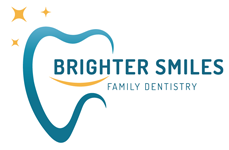
For many, it’s surprising to learn that numerous studies have established a link between poor dental health and heart disease.
Research consistently reveals that individuals with gum disease or tooth loss face a higher risk of heart conditions like heart attacks and strokes compared to those with good oral health.
Why You Need to Understand the Link Between Dental Health and Heart Disease
Failing to maintain oral hygiene can lead to serious health problems. When teeth and gums are not cared for, it can result in gum infections. These infections cause inflammation that doesn’t just stay in your mouth but spreads through your body via the bloodstream.
This inflammation can then cause the arteries to become clogged with fatty deposits, known as atherosclerosis, significantly increasing the chances of heart diseases, including heart attacks and strokes.
Recognizing these risks allows you to take proactive steps to enhance your dental hygiene and protect your heart. Regular visits to the dentist, thorough brushing and flossing, and promptly addressing any dental issues are essential.
By focusing on your oral health, you not only maintain a bright smile but also support your heart health.
This understanding promotes a comprehensive approach to healthcare, highlighting that good oral hygiene is crucial in preventing heart disease and enhancing your overall quality of life.
Can Dental Health Affect Your Heart?
Envision your circulatory system as a vast irrigation network. When oral hygiene is neglected, harmful bacteria from the mouth can infiltrate this system, leading to inflammation.
Poor oral hygiene, often resulting in bad teeth and heart disease, highlights the crucial link between dental care and overall cardiovascular health.
Newer studies indicate that inflammation from poor oral health can also worsen conditions like diabetes and high blood pressure, further elevating cardiovascular risks. Keeping up with regular dental care can significantly reduce these risks, promoting overall health.
Practicing proper dental care—such as brushing, flossing, and regular dental visits—can prevent harmful bacteria from entering the bloodstream, protecting both your oral and heart health.
Who Is at Risk?
Certain health conditions increase vulnerability to the link between oral health and heart problems.
Regular dental check-ups are essential for these groups to catch and treat oral health issues early, preventing heart complications.
To protect their overall health, it is essential for high-risk groups to maintain strict oral hygiene routines and schedule regular dental check-ups. These practices not only support dental health but also help prevent cardiovascular issues, highlighting the critical connection between oral care and heart health.
Symptoms and Warning Signs
Recognizing the symptoms of poor dental health is crucial as they might indicate a risk for heart disease. Common signs include:
- 1
Bleeding gums,
- 2
Persistent bad breath,
- 3
And loose teeth.
These symptoms suggest gum disease, which can lead to inflammation and infections affecting the heart.
Uncommon signs, such as jaw pain and swelling, can also point to serious dental issues. Being aware of these symptoms is vital as oral health and heart disease are closely connected. Patients should seek professional help promptly if they notice any of these signs.
Prevention Measures for Dental Health and Heart Disease
Proper oral hygiene is key to preventing both dental and heart diseases. Here are some useful tips:
Lifestyle changes can also reduce the risk of both dental and heart diseases. Regular exercise, maintaining a healthy weight, and managing stress are crucial for overall health.
Adopting these habits ensures good oral health and heart disease prevention, emphasizing the need for a comprehensive approach to well-being.
Regular dental visits are vital. Professional cleanings and check-ups allow for early detection and treatment of potential problems.
The Importance of Regular Dental Check-Ups
Routine dental check-ups are vital for preventing heart disease by identifying and addressing oral health issues early. During these visits, dentists can detect signs of gum disease and other problems that might lead to cardiovascular issues. Early intervention can prevent more serious complications.
A comprehensive dental check-up typically includes:
Frequent check-ups ensure early problem detection, emphasizing the connection between dental care and overall health.
Why Choose Brighter Smiles Family Dentistry for Your Dental Care?
Brighter Smiles Family Dentistry offers a unique blend of modern techniques and personalized care. Dr. Melani Fulton and her dedicated team provide comprehensive services, ranging from preventive care to complex restorative treatments. This includes general dentistry, orthodontics, gum disease treatment, and emergency dental services.
Patient feedback highlights the exceptional care at Brighter Smiles. For example, Ann V. praised the friendly staff and welcoming atmosphere, while another patient appreciated the comfortable, fear-free dental visits.
Choosing Brighter Smiles means opting for a team that treats you like family and prioritizes your overall health and well-being. Schedule an appointment today to experience high-quality, patient-centered dental care that supports both your dental and heart health.

About the Author
Brighter Smiles Family Dentistry, led by Dr. Melani Fulton, upholds a legacy of exceptional dental care in West Des Moines, IA. Dr. Fulton, a University of Iowa College of Dentistry alumna, specializes in family dentistry and orthodontics. She succeeded Dr. Dan Todd in 2021, continuing a tradition of patient-centered, high-quality dentistry. Committed to gentle, modern treatments, Dr. Fulton’s approach is deeply rooted in community values, ensuring every patient feels like family at Brighter Smiles.




